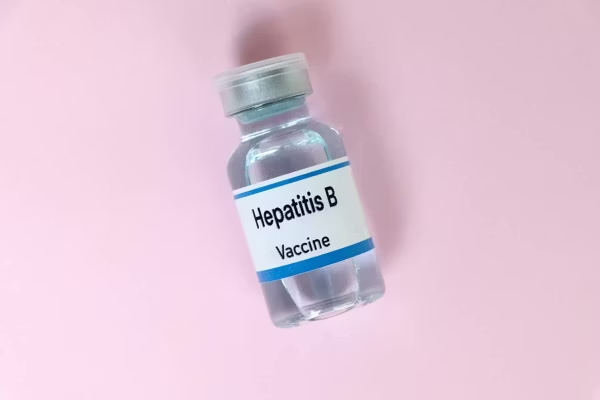A baby is considered premature when born before 37 weeks of pregnancy. While researchers are trying to uncover insights into the causes and prevention of preterm birth, the United States is still facing a crisis, according to Dr. Zsakeba Henderson, deputy chief medical and health officer at the March of Dimes, the nation's leading nonprofit devoted to mom and baby health.
HealthyWomen spoke with Henderson about the too-common pregnancy complication that affects around 360,000 babies each year.
How do I know if I’m at risk for preterm birth?
We don't always know for sure what causes preterm labor and premature birth. Sometimes labor starts on its own without warning, and even if you do everything right during pregnancy, you can still give birth early. We do know some things might increase your chances of giving birth prematurely, but having risk factors doesn't always mean you'll give birth early.
What are the risk factors for preterm birth?
Risk factors include having had a preterm birth before, being pregnant with multiple babies, or having cervix or uterus problems. Even before you become pregnant, there are risk factors for preterm birth, such as being underweight or overweight, getting late or no prenatal care, having a family history of preterm birth, being born preterm yourself, or getting pregnant again less than 18 months after having a baby. Even age is a risk factor for preterm birth. If you are younger than 17 or older than 35, you are more likely to give birth early.
During pregnancy, there are certain health conditions, along with other factors, that can lead to preterm labor and birth. Diabetes, high blood pressure and preeclampsia, sexually transmitted infections, bleeding from the vagina in the second or third trimester, not gaining enough weight during pregnancy, and being pregnant after in-vitro fertilization are risk factors, as well as disorders like Ehlers-Danlos syndrome. Birth defects can also cause your baby to be born early.
Risk factors in your everyday life include smoking (such as cigarettes, e-cigarettes, vaping and marijuana), drinking alcohol, using illegal drugs or abusing prescription drugs. Stress, working long hours and having to stand a lot can also be contributing factors. Having a low income or living with domestic violence also puts you at a higher risk of delivering your baby early. There are even environmental risk factors such as secondhand smoke and exposure to air pollution, lead, radiation, and chemicals in paint and plastics that put you at risk.
Are there ways I can lower my risk for preterm birth?
There are some risk factors you can't change, like having had a previous premature birth. Others you can do something about, like quitting smoking or drinking alcohol.
If I’m at risk, are there any prevention options I can discuss with my healthcare team?
There are several things you can do to lower your chance of having preterm labor.
- Most important, make an appointment with your healthcare provider (HCP) as soon as you think you're pregnant, and go to all your other prenatal checkups afterward, even if you're feeling fine. Prenatal care helps your HCP ensure that you and your baby are healthy.
- Speak to your HCP about any products that may be available to assist with preventing preterm birth.
- If you have chronic conditions such as high blood pressure, diabetes, thyroid problems or depression, don't stop taking your medications without talking to your HCP first.
- Protect yourself from infections and talk to your HCP about vaccines that can help protect you.
- Be sure to wash your hands with soap and water after using the bathroom or blowing your nose.
- Avoid sexually transmitted infections by practicing safe sex by using condoms.
- Reduce stress, and ask family and friends for help when you need it.
- Eat healthy foods and do something active every day.
- If your partner abuses you, speak to someone you trust about getting help.
- Most people should wait at least 18 months between giving birth and getting pregnant again. However, if you're older than 35 or you've had a miscarriage or stillbirth, talk to your HCP about how long you should wait between pregnancies.
Does race/ethnicity play a part in preterm labor?
Yes. For Black women, the preterm birth rate is 50% percent higher than for all other women. Over 14% of Black babies are born preterm each year. Nearly 11.6% percent of Native American/Alaskan babies, nearly 10% percent of Hispanic babies, and fewer than 10% percent of white and Asian babies are born too soon.
Barriers that make it hard for people of color to access health care contribute to higher rates of maternal and infant health complications for communities of color.
What are the signs and symptoms of preterm labor?
Signs of labor include having cramps that feel like your period or contractions that don't go away; changes in vaginal discharge, such as leaking fluid or bleeding; pelvic pressure and the feeling your baby is pushing down; or a low and dull backache.
If you experience any of these symptoms before 37 weeks, you may be in preterm labor and should reach out to your HCP, who may ask you to come into their office or hospital.
What do I need to know about what will happen to my body after the preterm birth of my baby?
Your body changes a lot after you give birth, and after the preterm birth of your baby, you may experience some of the same postpartum changes as women who did not deliver early. Some of these changes are physical, like your breasts getting full of milk, and others are emotional, like feeling extra stress.
It's important to go to all postpartum checkups, even if you're feeling fine. Postpartum depression (PPD) is the most common complication for women who have just had a baby. PPD is having strong feelings of sadness, anxiety and tiredness that last for a long time after giving birth, and these feelings can make it hard for you to take care of yourself and your baby. PPD is a medical condition that needs treatment to get better.
Resources
March of Dimes
This resource was created with support from Covis.
- Premature Baby Care Tips - HealthyWomen ›
- Premature Birth: Managing Risk Factors - HealthyWomen ›
- Born Too Soon - HealthyWomen ›
- Preterm Delivery Puts Moms at Risk, Too - HealthyWomen ›
- Can Living in the U.S. Increase Your Risk of Preterm Birth? - HealthyWomen ›
- Hypertension Caused Preterm Birth - HealthyWomen ›
- Vaccines Help Close Lifesaving Maternal Immunization Gaps - HealthyWomen ›
- Overall Preterm Birth Rates Increased - HealthyWomen ›







